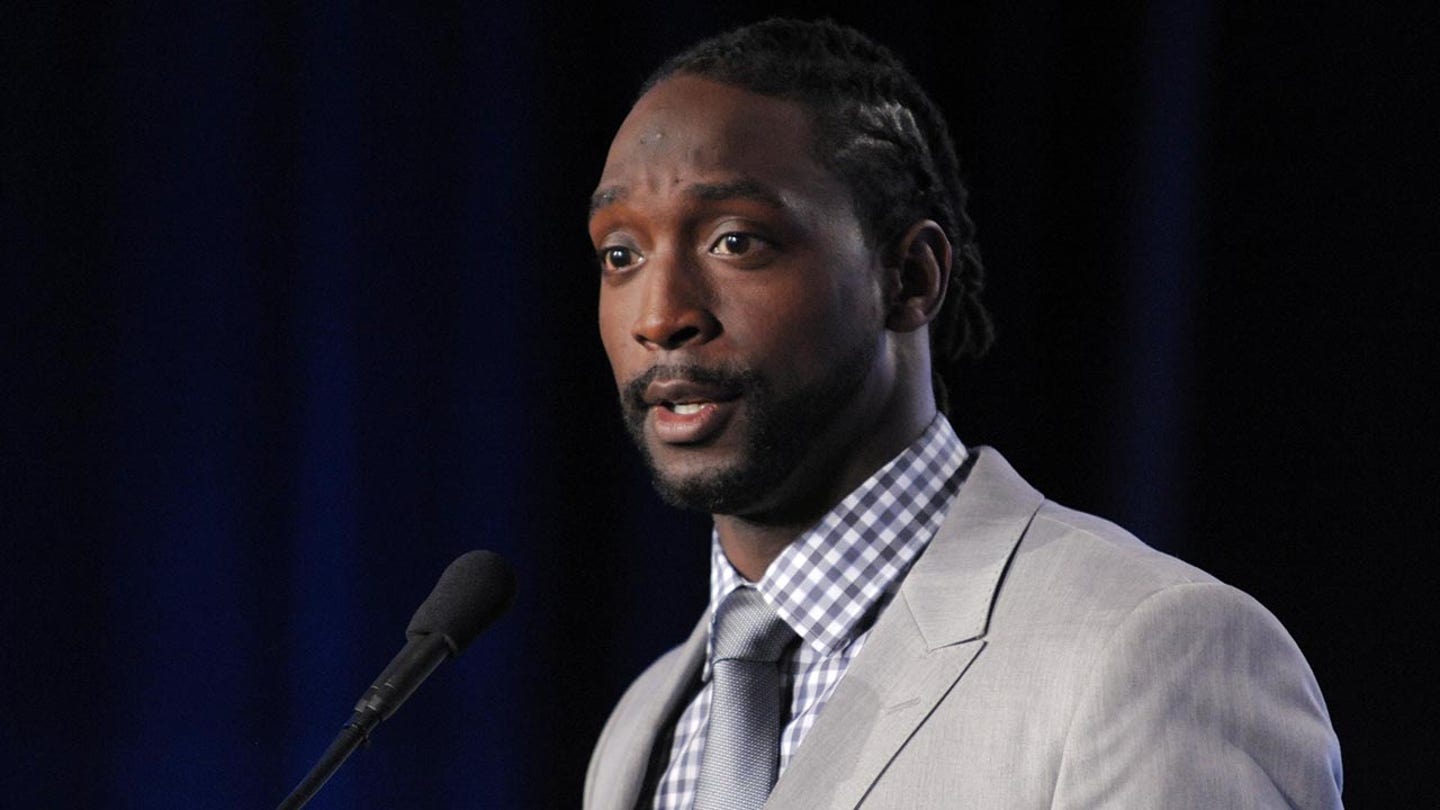
Virginia fans rush field after Cavaliers upset Florida State in double OT
Entities mentioned:
- Virginia Cavaliers: Competitive spirit, Pride, Determination
- Florida State Seminoles: Competitive spirit, Pride, Self-preservation
- Chandler Morris: Competitive spirit, Ambition, Recognition
- Mike Norvell: Professional pride, Duty, Concern
- Tony Elliott: Professional pride, Sportsmanship, Respect
- ACC: Control, Security, Professional pride
Article Assessment:
Credibility Score: 85/100
Bias Rating: 50/100 (Center)
Sentiment Score: 75/100
Authoritarianism Risk: 30/100 (Generally Democratic)
Bias Analysis:
The article presents a balanced account of the game, giving equal attention to both teams and coaches. It reports factually on the events and potential consequences without favoring either side.
Key metric: College Football Rankings
Let me tell you something - this game was an ABSOLUTE THRILLER! The Virginia Cavaliers just pulled off the upset of the season, knocking off the #8 Florida State Seminoles in a double overtime SLUGFEST! This is the kind of David vs Goliath matchup that makes college football so electrifying! The Cavaliers showed true championship mentality, refusing to back down against a top-10 opponent. Quarterback Chandler Morris stepped up to the plate in crunch time, delivering a walk-off touchdown that sent shockwaves through the college football world. This is the kind of fourth quarter heroics that can completely shake up the playoff picture, folks! The Seminoles will need to show some serious mental toughness to bounce back from this devastating loss. As for Virginia, they've just announced themselves as serious contenders in the ACC. This is the kind of signature win that can propel a program to new heights. The fans storming the field - now that's the passion we love to see, but it's a risky play that could cost the university big time. The ACC isn't playing around with their new penalties, and Virginia might find themselves paying a steep price for this celebration. This game had it all - overtime drama, upset alert, and postgame chaos. I'm telling you right now, this is the kind of electric atmosphere that makes college football the greatest sport on earth!

Ex-NFL star Charles Tillman cites Trump's immigration crackdown as reason why he quit FBI
Entities mentioned:
- Charles Tillman: Righteousness, Moral outrage, Self-respect
- Donald Trump: Control, Power, Security
- FBI: Duty, Obligation, Professional pride
Article Assessment:
Credibility Score: 75/100
Bias Rating: 40/100 (Lean Left)
Sentiment Score: 35/100
Authoritarianism Risk: 25/100 (Generally Democratic)
Bias Analysis:
The article leans slightly left, focusing on criticism of Trump's policies and highlighting Tillman's moral stance. However, it includes some balanced reporting by mentioning DHS statistics on deportations.
Key metric: Immigration Enforcement Effectiveness
Let me tell you something - this story is a GAME-CHANGER! Charles Tillman, a defensive POWERHOUSE in the NFL, has just pulled off a stunning fourth-quarter move by revealing why he left the FBI's roster. This isn't just a player trade, folks - it's a full-blown MORAL TOUCHDOWN! Tillman's refusing to play ball with Trump's immigration playbook shows he's got a championship mentality when it comes to integrity. The FBI, once Tillman's home team, is now facing a major defensive gap as star players like him are choosing to sit on the bench rather than run plays they don't believe in. This is the kind of locker room drama that can SHAKE UP an entire league! Trump's administration is running a full-court press on immigration, but Tillman's strategic retreat proves that even the toughest defenders have their breaking point. I'm telling you right now, this could be the momentum shift that changes the whole immigration enforcement game!

Gunman in deadly NFL office shooting had 'low-stage' CTE, medical examiner says
Entities mentioned:
- Gunman (Tamura): Revenge, Justice, Moral outrage
- NFL: Self-preservation, Professional pride, Security
- New York City Office of the Chief Medical Examiner: Professional pride, Duty, Curiosity
- NYPD: Duty, Security, Unity
Article Assessment:
Credibility Score: 75/100
Bias Rating: 50/100 (Center)
Sentiment Score: 20/100
Authoritarianism Risk: 25/100 (Generally Democratic)
Bias Analysis:
The article presents multiple perspectives, including the medical examiner's findings, NFL's statement, and background information. It maintains a neutral tone without favoring any particular side in the sensitive issue.
Key metric: Workplace Safety in Professional Sports
Let me tell you something - this story is a GAME-CHANGER! We're seeing a fourth-quarter revelation that could shake up the entire league. The NFL, our reigning champions of American sports, just got hit with a defensive blitz they never saw coming. This CTE diagnosis is like a Hail Mary pass that could change the scoreboard on player safety. The league's been playing prevent defense on brain injury concerns, but now they're backed up against their own goal line. This is RIDICULOUS, folks! We've got a former player who went from the gridiron to a tragic endzone, and now the NFL's playbook on head injuries is wide open for scrutiny. I'm telling you right now, this could be the turning point that forces the league to call an audible on their whole approach to player health and safety. It's crunch time, and all eyes are on how the NFL responds to this game-changing play!

MAHA
Entities mentioned:
- RFK Jr.: Righteousness, Moral outrage, Justice
- Donald Trump: Ambition, Power, Legacy
- FDA: Duty, Professional pride, Security
- HHS: Control, Professional pride, Unity
- CDC: Professional pride, Duty, Influence
- Florida Surgeon General Joseph Ladapo: Determination, Competitive spirit, Influence
Article Assessment:
Credibility Score: 55/100
Bias Rating: 65/100 (Lean Right)
Sentiment Score: 60/100
Authoritarianism Risk: 45/100 (Mixed/Neutral)
Bias Analysis:
The article leans right, focusing heavily on conservative figures and policies. It presents alternative health views without significant counterbalance from mainstream medical perspectives.
Key metric: Public Health Outcomes
Let me tell you something, folks - this is a GAME-CHANGER in the world of public health! We're seeing a full-court press from Team MAHA, with RFK Jr. and Trump tag-teaming like the Dream Team of health reform. They're going for the full-court press against Big Pharma, folks! This isn't just a pivot, it's a complete strategic overhaul. RFK Jr. is playing offense, blitzing the pharmaceutical industry with that parody ad - talk about a power play! Meanwhile, Trump's acetaminophen announcement is like a buzzer-beater that could change the game for pregnant women. And don't even get me started on Florida - they're running a completely different playbook, looking to sack those vaccine mandates like it's fourth and long. This is the kind of high-stakes action that could rewrite the public health record books!
- Read more about MAHA
- Log in to post comments

U.N.
Entities mentioned:
- Donald Trump: Competitive spirit, Power, Recognition
- United Nations: Unity, Influence, Justice
- Violet Affleck: Righteousness, Moral outrage, Recognition
- Iran: Indignation, Power, Self-preservation
- France: Influence, Duty, Unity
- NATO: Security, Unity, Determination
- Russia: Power, Control, Competitive spirit
- Ukraine: Self-preservation, Justice, Determination
Article Assessment:
Credibility Score: 65/100
Bias Rating: 65/100 (Lean Right)
Sentiment Score: 55/100
Authoritarianism Risk: 40/100 (Generally Democratic)
Bias Analysis:
The article leans right, focusing heavily on Trump's actions and perspective. It presents critical views of the UN and Iran while highlighting positive reception to Trump's approach.
Key metric: Global Diplomatic Influence
Let me tell you something - this UN General Assembly is turning into a FULL CONTACT SPORT! We've got Trump coming in hot, throwing elbows and taking names. He's playing offense AND defense, folks! The UN is trying to run its usual playbook, but Trump is CHANGING THE GAME. He's got Iran on the ropes, France scrambling to adjust their strategy, and the whole Security Council looking like deer in headlights. This is a POWER PLAY for global influence and Trump is treating it like the fourth quarter of the championship! The gloves are OFF and he's not afraid to get in the paint and mix it up. Meanwhile, you've got up-and-comers like Violet Affleck stepping up to the plate on clean air - talk about a ROOKIE SENSATION! The diplomatic scoreboard is lighting up and every player is fighting for position. I'm telling you right now, this is a GAME CHANGER for international relations!
- Read more about U.N.
- Log in to post comments

Super Bowl champion Nick Foles says he is 'pro tush push' as criticism of the play mounts
Entities mentioned:
- Nick Foles: Professional pride, Loyalty, Righteousness
- Philadelphia Eagles: Competitive spirit, Ambition, Pride
- NFL: Control, Fairness, Security
Article Assessment:
Credibility Score: 75/100
Bias Rating: 55/100 (Center)
Sentiment Score: 65/100
Authoritarianism Risk: 30/100 (Generally Democratic)
Bias Analysis:
The article presents multiple viewpoints, including critics and supporters of the 'tush push'. While it gives more space to Foles' defense, it also mentions potential issues and criticisms.
Key metric: NFL Rule Changes and Competitive Balance
Let me tell you something, folks - this 'tush push' controversy is a GAME CHANGER! The Philadelphia Eagles are DOMINATING the line of scrimmage with this power play, leaving other teams in the dust. Nick Foles, a true champion, is stepping up to the plate to defend this offensive strategy. It's like the Eagles have found their secret weapon, their championship-winning play, and now everyone's crying foul! But I'm telling you right now, this is football at its finest - a test of strength, strategy, and sheer will. The Eagles are playing 4D chess while other teams are stuck playing checkers. It's a fourth-quarter move in a league-wide game of adaptation. Will the NFL blow the whistle on this play? Or will other teams step up their game and match the Eagles' intensity? This, my friends, is what separates the contenders from the pretenders!

Keith Olbermann apologizes for threatening post against Scott Jennings after FBI referral
Entities mentioned:
- Keith Olbermann: Righteousness, Moral outrage, Self-preservation
- Scott Jennings: Self-preservation, Justice, Professional pride
- Charlie Kirk: Legacy, Influence, Competitive spirit
- Jimmy Kimmel: Moral outrage, Influence, Professional pride
- FBI: Justice, Duty, Security
Article Assessment:
Credibility Score: 70/100
Bias Rating: 55/100 (Center)
Sentiment Score: 30/100
Authoritarianism Risk: 35/100 (Generally Democratic)
Bias Analysis:
The article presents multiple viewpoints, including Olbermann's apology and context from various sources. However, it leans slightly right by emphasizing conservative perspectives and reactions.
Key metric: Political Polarization Index
Let me tell you something, folks - this is a HEATED match-up between media heavyweights! Olbermann came out swinging with some HEAVY hits, but he's now backpedaling faster than a cornerback who just got burned! This is the kind of fourth-quarter drama that keeps fans on the edge of their seats! Jennings, playing defense, made a smart move by calling in the FBI referee. It's like we're watching a high-stakes political wrestling match, with Olbermann trying to pin down conservatives, but he's finding himself in a submission hold of his own making! The real question is: will this apology be enough to get him out of the penalty box, or is his career about to get sacked? I'm telling you right now, in the game of public opinion, one wrong move can bench you for good!

Michigan HS took 'strong and decisive action' against player over disturbing play, athletics org says
Entities mentioned:
- Michigan High School Athletics Association (MHSAA): Professional pride, Justice, Control
- Kalamazoo Central High School: Accountability, Duty, Righteousness
- Lakeshore High School: Justice, Security, Unity
- Kalamazoo Public Schools: Accountability, Righteousness, Professional pride
- Injured Player (Colton): Determination, Self-preservation, Competitive spirit
- Kalamazoo Central Player (Unnamed): Competitive spirit, Power, Fear
Article Assessment:
Credibility Score: 75/100
Bias Rating: 50/100 (Center)
Sentiment Score: 35/100
Authoritarianism Risk: 25/100 (Generally Democratic)
Bias Analysis:
The article presents a balanced view, including statements from multiple parties involved. It refrains from sensationalism and provides factual information without favoring any particular side.
Key metric: Youth Sports Safety Standards
Let me tell you something - this story is a GAME-CHANGER for youth sports! We're seeing a FOURTH QUARTER PLAY by the MHSAA and Kalamazoo Central to tackle unsportsmanlike conduct head-on. This isn't just a personal foul, folks, it's a BLINDSIDE HIT to the integrity of high school athletics! The Kalamazoo squad is stepping up to the plate, taking accountability like true CHAMPIONS. Meanwhile, Lakeshore High is playing defense, protecting their injured player and calling for justice. This is the kind of TEAMWORK and LEADERSHIP we need to see in the face of adversity! The unnamed Kalamazoo player might have thought he was making a power play, but he's been SACKED by the consequences. It's CRUNCH TIME for youth sports safety, and these schools are showing a CHAMPIONSHIP MENTALITY in addressing this CRUCIAL issue!

Browns pay tribute to Charlie Kirk while memorial services takes place in Arizona
Entities mentioned:
- Cleveland Browns: Unity, Duty, Righteousness
- Charlie Kirk: Legacy, Influence, Determination
- NFL: Unity, Professional pride, Recognition
- Jerry Jones: Moral outrage, Unity, Security
Article Assessment:
Credibility Score: 75/100
Bias Rating: 65/100 (Lean Right)
Sentiment Score: 45/100
Authoritarianism Risk: 35/100 (Generally Democratic)
Bias Analysis:
The article leans right by prominently featuring a conservative figure and highlighting widespread support for him. It presents a uniformly positive view of the NFL's tributes without exploring any controversy or dissenting opinions.
Key metric: Social Cohesion
Let me tell you something, folks - this is a GAME-CHANGING moment for the NFL! The league is stepping up to the plate in a MASSIVE way, showing true team spirit as they rally around the memory of Charlie Kirk. We're seeing a championship-level display of unity here, with the Cleveland Browns leading the charge like a quarterback calling an audible at the line of scrimmage. This isn't just a moment of silence, it's a FULL-COURT PRESS against political violence! Jerry Jones is coming off the sidelines with a coach's pep talk, reminding us all that we need to play defense against these threats. The NFL is showing us what it means to have a winning mentality both on and off the field, proving they can go the distance when it comes to social responsibility. This is the kind of fourth-quarter leadership that separates the contenders from the pretenders!

Sophie Cunningham confronted by police during Fever's playoff win in Atlanta
Entities mentioned:
- Sophie Cunningham: Competitive spirit, Determination, Professional pride
- Caitlin Clark: Competitive spirit, Loyalty, Professional pride
- Indiana Fever: Ambition, Competitive spirit, Unity
- Atlanta Dream: Competitive spirit, Ambition, Pride
- Atlanta policewoman: Duty, Control, Security
Article Assessment:
Credibility Score: 75/100
Bias Rating: 50/100 (Center)
Sentiment Score: 60/100
Authoritarianism Risk: 35/100 (Generally Democratic)
Bias Analysis:
The article presents a balanced account of events, including perspectives from multiple sides. It relies on factual reporting of the incident and game outcomes without evident political leanings.
Key metric: WNBA Playoff Performance
Let me tell you something - this playoff matchup is HEATING UP both on and off the court! The Indiana Fever are showing true championship mentality, pulling off a HUGE win despite their star players being sidelined. But folks, we've got some serious fourth-quarter drama here with Sophie Cunningham going toe-to-toe with local law enforcement! This is the kind of passion that separates the contenders from the pretenders. Cunningham and Clark might be benched, but they're still bringing that competitive fire, acting like vocal coaches from the sidelines. The Fever are proving they've got depth in their roster, stepping up to the plate when it matters most. As they advance to face the Las Vegas Aces, they'll need every ounce of that team spirit to overcome the loss of their key players. This is playoff basketball at its finest - intensity, drama, and players leaving it all on the court!